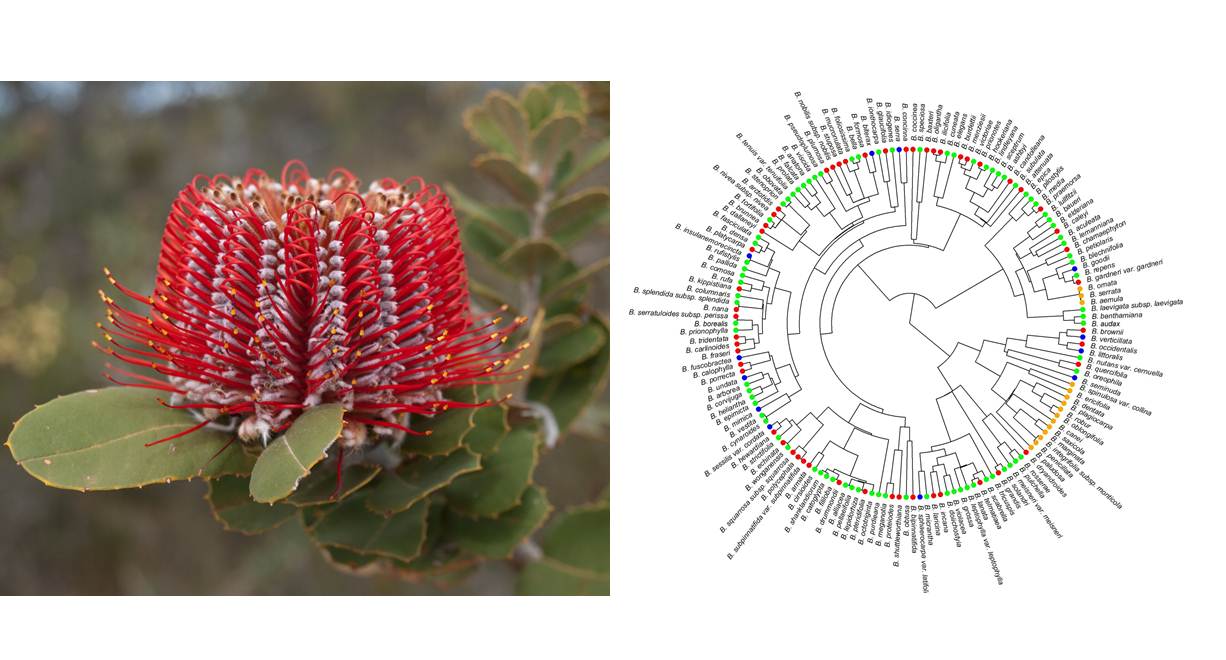Phylogeny, biogeography and diversification of Australian plants
We are focusing on the diverse Australian plant family Proteaceae (which includes such iconic genera as Banksia, Hakea and Grevillea) to explore plant diversification processes generally, and the diversity of Australia's southwest corner in particular.
Project status
Content navigation
About

Mediterranean-climate regions, such as Australia’s southwest, often have spectacular botanical diversity, despite poor soils and low rainfall, and the underlying causes are still not well understood. We are focusing on the diverse Australian plant family Proteaceae (which includes such iconic genera as Banksia, Hakea and Grevillea) to explore plant diversification processes generally, and the diversity of Australia's southwest corner in particular. We are using genomic data to construct species-level phylogenies for some of these genera, and by combining these with spatial and ecological data, we are exploring questions such as:
- are rates of diversification higher in southwest Australian lineages?
- does phylogenetic niche conservatism contribute to the high diversity of Mediterranean-type environments?
- how frequently have evolutionary shifts between biomes occurred?
- can community phylogenetics help us uncover the ecological mechanisms of species coexistence?
There is plenty of scope for student involvement in this project, either at the honours or higher degree level. Please get in touch with Marcel (marcel.cardillo@anu.edu.au) if you are interested in joining the Macroevolution & Macroecology group to work on these or similar topics. Visit our Group website for more details on the kinds of research we do.

